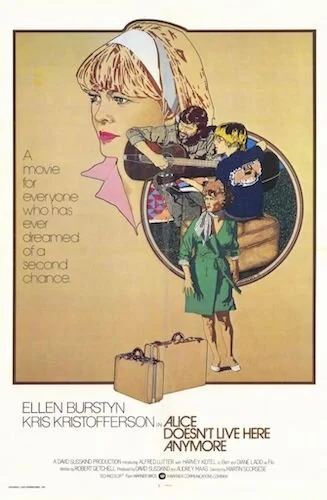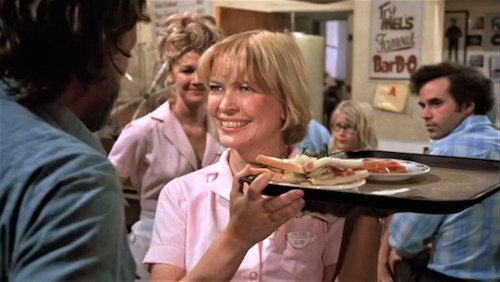Alice Doesn't Live Here Anymore: On-This-Day Thursday
Every Thursday, an older film released on this opening weekend years ago will be reviewed. They can be classics, or simply popular films that happened to be released to the world on the same date.
For December 9th, we are going to have a look at Alice Doesn’t Live Here Anymore.
After Mean Streets, Martin Scorsese was becoming the New Hollywood auteur that had something to say. He was three films deep (after Who’s That Knocking at My Door, and Boxcar Bertha), and had shown so much promise with this then-latest criminal breakthrough feature. Of course, Taxi Driver was around the corner, but Scorsese wasn’t quite ready to get that dark yet. If anything, Scorsese should be getting a lot more credit for how well he staggers his films by genre and tone, and it’s clear as day that he was always aware of what he was releasing and when. Such a noticeable shift way from the label of danger and/or grit that pop culture has bestowed upon him (neglecting his many other achievements) is Alice Doesn’t Live Here Anymore: his first declaration that he could offer much more to American cinema than just thrills.
Starring Ellen Burstyn as Alice Hyatt (a now iconic character in a number of ways, thanks to the follow up television series), Alice is one of the earliest instances of Scorsese proving that he’s a mama’s boy at heart, as it delivers a compelling hat tip to all of the struggling mothers of the world that will do anything to help her family get by. In this particular case, Alice provides its titular mother with a voice: specifically a singing voice. This is the opportunity for a single parent — recently widowed, in the film — to live out their dreams whilst being a morally just guardian as well. Of course, Alice is an effort to balance both ambitions, and Burstyn makes the difficulty of this ideal situation known, through her magnetic dramatic chops, her hilarious motherly retorts, and a composite of every known feeling hitting us directly, as if she were on the stage and we sat in her audience.
Ellen Burstyn is still the star of the show, even with the entire picture being as solid as it is.
As a whole, Alice Doesn’t Live Here Anymore is a mightily sympathetic film, made at a time when people might be quick to accuse Scorsese of being heartless (and anyone saying that now really doesn’t know his filmography well at all). Crafted like a contemporary fable, Alice Hyatt’s journeys and hardships are so relatable and told modestly enough. In the previous films, Scorsese took us to parts of America to expose us to lives we likely wouldn’t ever live. With Alice, he spoke to many of us directly, letting us know that, before he goes any further down the explorative rabbit hole, he understood his audience thoroughly. Alice is sweet yet powerful, funny yet emotional, triumphant yet humble. It’s a juxtapositions of so many qualities at once, all following behind the lead character (and the dynamite actress that brought her to life). Even though there are stronger films of Martin Scorsese’s that aren’t explicitly violent or crime based, I often point naysayers or the newly enlightened fans to Alice Doesn’t Live Here Anymore, because it’s such a marvellous palette cleanser in his early filmography.
Andreas Babiolakis has a Masters degree in Film and Photography Preservation and Collections management from Ryerson University, as well as a Bachelors degree in Cinema Studies from York University. His favourite times of year are the Criterion Collection flash sales and the annual Toronto International Film Festival.






